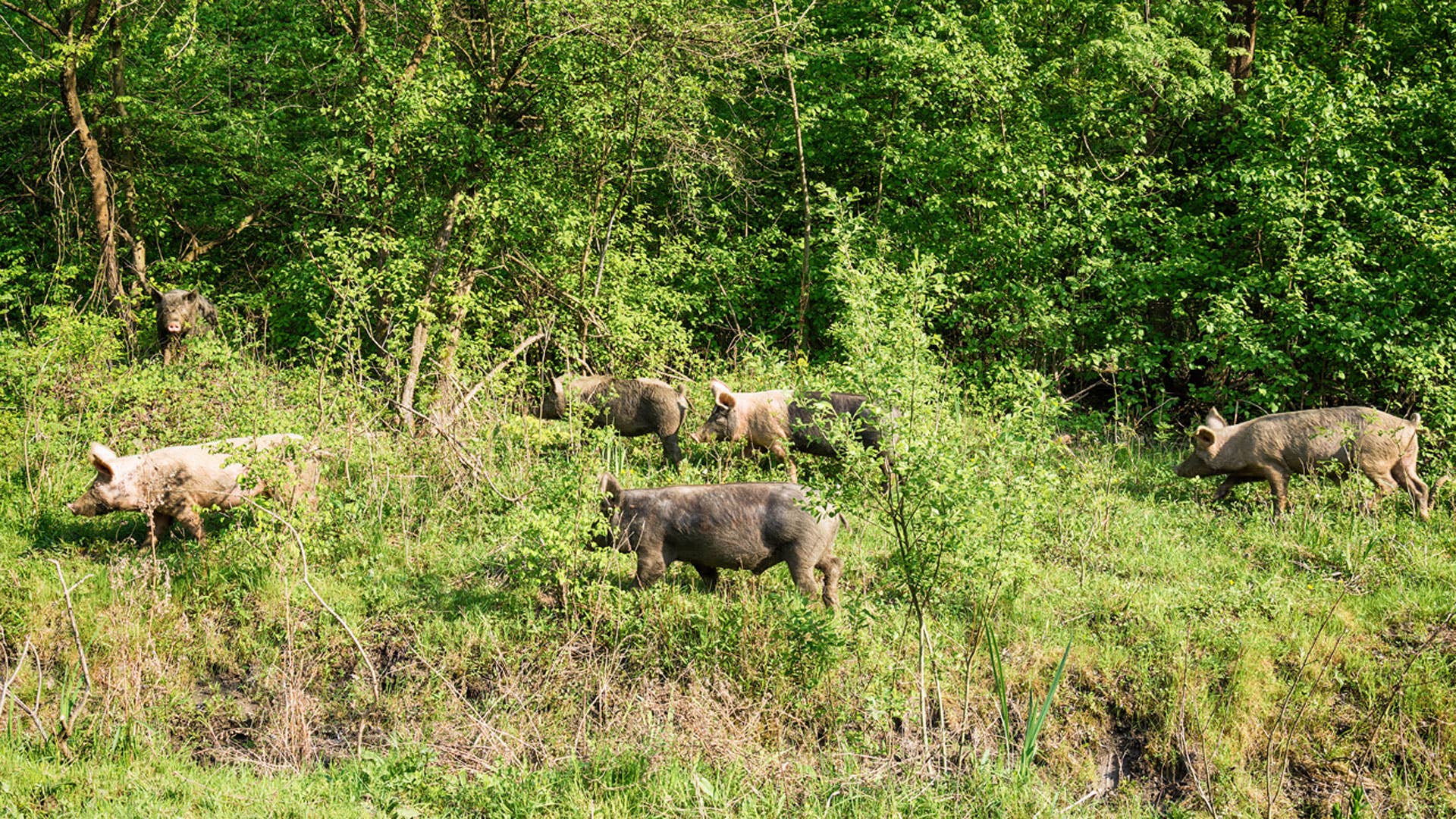
According to new research, the annual environmental impact of wild pigs across the globe is equivalent to the greenhouse gas emissions of 1.1 million cars.
The pigs do this by uprooting soil constantly in a search for food, with a group of international researchers estimating that doing this causes them to pump out about 4.9 million metric tons of carbon dioxide every year.
Dr. Christopher O’Bryan, a researcher out of the University of Queensland, Australia, says that feral pigs are one of the planet’s most widely spread out invasive species, with the same research team adding the estimate that the animals are uprooting an area as large as 14,000 square miles in areas they’re not native to.
“Pigs are native to Europe and parts of Asia, but they’ve been introduced to every continent except Antarctica,” said O’Bryan, according to The Guardian. “When we think of climate change, we tend to think of the classic fossil fuel problem. This is one of the additional threats to carbon, and to climate change potentially, that hasn’t really been explored in any global sense.”
O’Bryan went on to compare the hogs’ uprooting of the earth to “mini tractors that are ploughing soil.” He says that when they do this, they expose microbes in the soil to oxygen and that the microbes “reproduce at a rapid rate and then that can produce carbon emissions [in the form of] CO2.”
“Any form of land-use change can have an effect on carbon emissions from the soil,” he continued. “The same thing happens when you put a tractor through a field or you deforest land.”
O’Bryan added that the issue was the fault of humans spreading the pigs across the globe, and that future management of the issue will come down to priorities.
“If all we care about is agriculture, then the cost and the benefits of managing pigs will be different than if all we cared about was carbon emissions, than if all we cared about was biodiversity,” he said. “At the end of the day, feral pigs are a human problem. We’ve spread them around the world. This is another human-mediated climate impact.”
The findings were published in the journal Global Change Biology. You can read more here.

